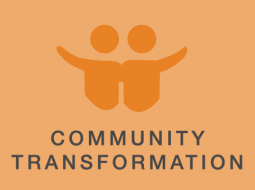Overview
We believe that it is in the plan of God that His people prosper and be in health as the Scriptures promise. The reality, however, is that we encounter poverty and disease wherever we travel. Nevertheless, we want to press on in the struggles of life to take steps to reduce the effects of disease and do all possible to assist people in healing processes and disease prevention.
In the same way, economic deprivation is seen worldwide except in a few prosperous locations. Even though poverty is so common, the promises of God address the pathway to prosperity.
The transformation from sickness to health and poverty to prosperity is a process. As we battle against the environmental, economic and spiritual elements, there are streams in the desert. There is an oasis just when we may think all is lost and there is no hope.
Our quest is to learn how to apply the principles of life in such a way that our peace is not robbed through unwise choices. Often unpreventable circumstances overwhelm us and emergencies disrupt our well laid plans. Even when bad things happen to good people, the pieces of life can be reassembled and the grace for living propels us onward.
As we focus on the principle-centered life, faith and knowledge of Christ compels us to continue to press on in discovering better days through better ways. The Holy Bible is our guide.
Discussion
Success – action is required to be successful. Inaction or immobility stifles even the best of plans or the highest of capabilities. Indecision can hinder even the smallest gain. Impetuousness, on the other hand, can lead to hurt as over-aggressiveness can lead an entire team into a pit of turmoil and stress.
Success requires a balanced approach be taken to vision, planning, implementation and follow-up.
Dave Duell, a friend of Calvary International from Greeley, Colorado has identified keys to success as shown in the following chart.
Success
Decide what to do
Get started
And
Don’t Quit!
Charles “Red” Scott CEC of TEC (The Executive Committee) of Florida summarized a list of secrets of success.
It was following some of these same points that helped him acquire Pier 1 Imports and other ventures that he turned into world class companies.
One of his main strategies is to know the cash position of every one of his enterprises every night!
|
|

Observations
Throughout life we observe many responses to joy and sorrow; prosperity and adversity. The following are some of my observations from an early age.
- Frank suffered through the Great Depression and lacked so much! After he became financially stable he always carried a $100 bill in his wallet just to help him feel confident of his financial wellbeing.
- OJ stepped into the church vestibule just as the offering was being taken. He opened his wallet and I saw many $20 bills. He dropped a $20 into the offering plate. I saw that as a young boy and said to myself, “one day I am going to be able to give like that.” The year: 1949, My age, 12 years, a typical weekly wage $50.
- Jeannie, an elderly retired lady, discovered in 1977 that she had a total of $260 in her checking account. She was petrified! She had never had that much money in her life. She felt guilty about having so much, when others had so little. She had never been trained in any aspect of money management or wealth creation. She had been a Christian all of her life, but teaching on the handling of money was only in the context of giving to the Church. I call this “financial illiteracy.” I trained Jeannie that saving for the future was a godly and wise thing to do.
- esus trained so much on money, possessions, wealth and attitudes; but in the modern church, wealth creation, inheritance and effective money management is a part of theology ineffectively covered in Christian discipleship or training. Some churches never teach on this subject at all.
- In Islam, life is an integrated whole.
- The Mosque is for worship, training and motivation.
- Islamic schools and universities of the Koran train young people to be successful in life, family and business.
- Strong apprenticeship learning models are at all levels.
- Islamic banks provide currency and monetary policy.
- Islamic Sharia law from the Koran, guides the society.
- Islam has armies and security elements.
- Islam controls, touches and covers all social, religious and economic aspects of life.
- When a person is born into an Islamic family, or later embraces Islam, it is almost impossible to disengage from it.
- The family is the basic infrastructure of social services among Muslims. The men may legally have up to four wives. This places nearly all people within a family structure.
Recovery
In the military, things can go wrong and great loss can occur even when the plans were good and the forces were strong. One setback does not mean defeat. A setback is countered by a disaster response. This is a rapid pre-planned action, implemented decisively and aggressively. This helps to cut the losses short.
In the Wall Street world of stocks, we learn to cut the losses and let the winners run on.
There is no sense in continuing in a losing situation. There is always a new game for another day.
In computer systems within a company or organization, the technical systems are not perfect. There can be massive computer system or network failures. The “Disaster Recovery Plan” is activated immediately and the “Rapid Response Team” aggressively finds the problem, fixes it and gets the system up and going again successfully.
Life itself is much like the above examples. There can be recovering after a heart episode and there are many cancer survivors. Collisions occur with cars and the people need help in recovering from their injuries as well as the car needs straightening of the crushed fender. Life also has its bumps and bruises.
Reconstruction
After the U.S. Civil War a period of reconstruction ensued. This had mixed results depending on the severity of the loss. It took a long time – nearly a hundred years for the Pearl of the South (Atlanta) to re-emerge as a world class city.
After certain disfiguring surgeries, reconstructive surgery may be used to encourage the patient toward restoring former confidence.
Periodically the major airline companies go bankrupt. They are able to cancel old labor contracts, restructure debt, and then come out of bankruptcy with a “new look” and new confidence that they are ready to face their competition with a plan, purpose and passion.
A large, old brick factory building in downtown St Louis once housed a decaying business. Many nearby buildings were demolished, but others received a new purpose. A vision of reconstruction of downtown St. Louis included making “Loft Condominiums.” The old factory buildings were converted into modern day housing and the decaying districts began to have a new outlook.
The life of a beautiful young lady was crushed as she and her children were left alone after the sudden death of her successful and faithful husband.
These examples all required reconstruction because the former things simply were no longer possible. Frequently these problems were no fault of the people in charge. Like a Tsunami, unforeseen change came rushing in and left financial or other types of destruction in the wake.
The crucial consideration is, “what is your response?” In most international organizations, a crisis plan is prepared in advance that permits an immediate response to most events by simply opening the Crisis Plan Book and following the pre-planned, outlined steps.
Many things that disrupt life, love, family, finance, business and ministry need a ready response system that can be implemented when a crisis suddenly happens.
Responses
- Responses to past experiences vary among people according to their former experiences, training and temperament.
- A response to the Great Depression of the 1930s for some was to never take another risk, no matter how good the possible outcome appeared to be. An alternate response by others was, “we made it through the 1929 stock market crash, lost everything, were humiliated and crushed. However we built a life and estate before the crash and we can do it again!”
- Self-confidence is an essential response to either establish a life of significance or to re-establish it again after a serious setback. As one said, “I spent my first 60 years accumulating my first one million dollars of assets, but less than 10 more years to multiply to the next million dollar level.
- We have seen various responses to crises such as a divorce, bankruptcy, critical illness, rebellious children, great loss due to injustice, etc. Our response is all about attitude!
Responsibility
Being responsible means that I am solely accountable for:
My attitude
My actions
My decisions
Allocation of my resources
RECAP
In this discussion we have reviewed:
Success
Risk
Recovery
Reconstruction
Responses
Responsibility

